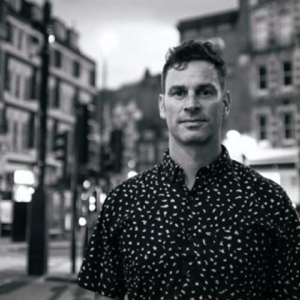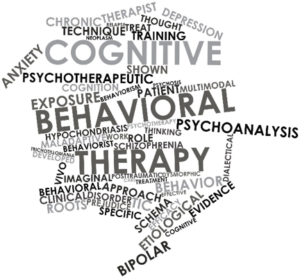Michael Stone: One last lesson
I’ve heard coaches say that we manifest absolutely everything that happens in our lives, good or bad.
I’ve also heard coaches say that when you are in a position of “scarcity,” you should simply reframe back to the idea of “abundance.” With this in mind, I would like to tell you a story about someone iconic in the self-improvement world.
My story today is about Michael Stone. He was a husband, a father, an inspirational writer, speaker, yoga teacher, and Buddhist. He was indeed a master teacher; his lessons are some of the most elegant I have ever heard.

He also had bipolar disorder. He suffered with it most of his life. On July 16 of this year, he died of an accidental fentanyl overdose.
In addition to the really heartbreaking details of this story, I read that Stone was considering the idea of revealing his diagnosis publicly, but was concerned about the stigma that can come along with that. Particularly in his world, the stigma of bipolar-disorder was a big thing. The official statement from Stone’s family was that as his disorder got worse, Michael and his wife “established self-care routines.” He exercised more. He went to bed earlier than normal. He ate a special diet. They joked about fecal transplants. He saw naturopaths and herbalists and trainers and therapists.
Particularly in his world, the stigma of
bipolar-disorder was a big thing.
He continued his daily practice to his last day.
For years they managed it without much assistance. As things worsened, he turned to psychiatry and medication as well. The statement from Michaels family clearly and rightly defends against the inexorable judgment that he didn’t do enough. We all try and do the right thing for ourselves and so did Michael. He could be any one of us…you or me.

We coaches are a group of people aware of the power of alternative forms of medicine. Plenty of us, including me, arrive on our mats because of darkness and pain and a deep desire to feel better. Yep, yoga helps—sometimes. Other times, it doesn’t. It’s certainly not always enough.
Yet, even in the aftershock of Michael’s death, some people are saying that he should have tried acupuncture or a different meditation teacher, blah, blah, blah. These kinds of messages are the antithesis of what Michael taught. Their ugly insinuations imply that our pain is our own fault, that we should be able to control it somehow, and the not controlling it is a weakness. I get that people—coaches—hang on to that belief because we are all trying to survive, and many of us coaches have taught people to think that way.
We forgot to teach that sometimes it just isn’t their fault.
Their ugly insinuations imply that
our pain is our own fault, that we
should be able to control it somehow.
It’s heartening to think that petitioning the universe could make our pain go away. When someone like Michael demonstrates the truth, that life doesn’t work that way, it’s easier to shame and blame the messenger. It is terribly difficult to admit the threat to our own comforting but still limiting beliefs.
Michael felt that too. He wrote:
“You’d think that given all this inner work, an incredible network of support, strong friendships, a loving partner and kids, and lastly, a life dedicated to embodying the dharma (literally every single day includes practice and study), that I’d be immune to extreme mental states.”
He wasn’t. On his last day on earth, he tried:
“He got a haircut, exercised, ran household errands and finally acquired a street drug.”
If the drug he purchased hadn’t been laced with fentanyl, it would have been just another item on the list of days and ways he was trying to survive. But it was, and he died.
Period—but not really.
Michael never taught in a way that promised to solve everything. He understood that there are common social problems in the world that contribute to our individual poverty, pain, trauma, and addictions. He spent every day doing his best to make the world a better place. I think that he was such a brilliant teacher because he had to struggle with his own personal form of darkness every day.
We are, all of us, lucky that he shared what he learned with us. His message will live on for us in his podcasts, and through everyone he ever touched with his work. I for one, wish we could have helped him better in that struggle. I wish he could have trusted us to see his worth, no matter what he was trying to survive. He couldn’t.
We failed him…the whole community failed him.

He was such a
brilliant teacher because
he had to struggle with his
own personal
form of darkness every day.
As coaches, we have to acknowledge that coaching, yoga, self-care, and alternative forms of medicine won’t fix everything. It’s wonderful when these things work, but it’s okay too when they don’t.

It’s okay to have a mood disorder. It’s okay to take medication. Sometimes it is the only way. It’s okay to do everything absolutely perfectly right, and still feel like the world is too heavy to hold onto…or as Atlas learned…to hold up. The world is heavy. Our human arms are not always strong enough to hold it, no matter what we do. At the very least, we can see each other and hold each other in our pain without trying to find a solution to the unsolvable. There are times when you just can’t ‘fix it.’
There are lessons around us each and every day, perhaps that was part of what Michael was trying to teach us.

I hope we are smart enough to learn his one last lesson.
so, what do you think? Are you in carrying the weight of the world alone?
If you are, give me a call so we can talk about it… schedule a time for a call and tell me about it.
CLICK HERE TO SCHEDULE YOUR CALL
Did You Enjoy This? Become a Subscriber and Learn More
As an independent coach and writer, I manage my own marketing, my own press, and all of my own content. I develop my content responsive to your requests
…and some things that just stick in my craw.
By becoming a member of my site, you can gain access to articles, audio versions, and commentaries relevant to my articles. You will also find interactive online courses. We have quite a bit more to come; I hope to hold your interest for quite a long time as we all grow and learn.


